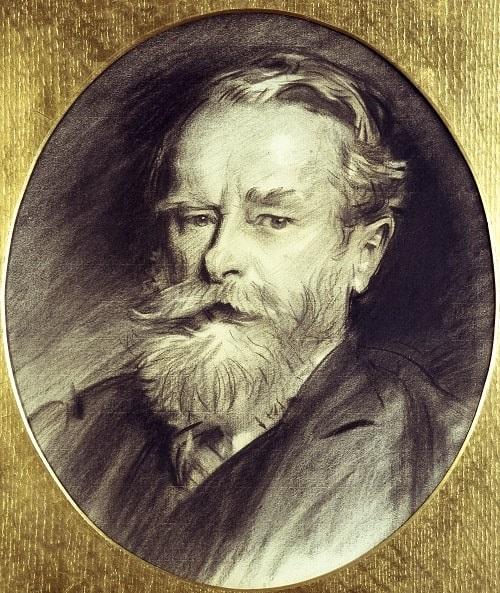Frank Payne was born in Camberwell, the second son of Joseph Payne, the first professor of education at the College of Preceptors, by his wife Eliza Dyer. He was educated under his father at Leatherhead and then sent to University College, London. In 1858 he won a scholarship to Magdalen College, Oxford, where four years later he graduated as B.A. with first-class honours in natural science and after another year was elected to a fellowship. In 1863, too, he was awarded the Burdett-Coutts scholarship for geology and in 1865 a Radcliffe travelling fellowship. He studied medicine at St. George’s Hospital and at Paris, Berlin and Vienna, and graduated as B.M. in 1867. His first appointments were as demonstrator and then assistant physician at St. Mary’s Hospital and as assistant physician at the Hospital for Sick Children. He left St. Mary’s in 1871 on election to the staff of St. Thomas’s, where in 1884 he was made full physician, retiring in 1900. He was, in addition, on the staff of the Hospital for Skin Diseases, Blackfriars.
Payne’s professional interests were centred on pathology, epidemiology, dermatology and the history of medicine. He edited Jones and Sieveking’s Manual of Pathological Anatomy in 1875 and produced his own Manual of General Pathology in 1888. A visit to Russia in 1879 to report on plague for the Government was followed by articles on the subject in Allbutt’s System of Medicine and other publications. He published observations on skin diseases and was president of the Dermatological Society in 1892-93. But medical history was his chief interest. His writings included standard lives of Linacre (1881) and Sydenham (1900), an article on the history of medicine in the Encyclopaedia Britannica, and numerous lives in the Dictionary of National Biography. He was eminently suited to the office of Harveian Librarian at the Royal College of Physicians which he filled from 1899 until a few months before his death, and the College library derived incalculable benefit from his expert practical knowledge of incunabula, first editions and bibliography, as well as from generous gifts from his private collection. Payne was also Senior Censor of the College, and delivered the Goulstonian Lectures (1874), the Harveian Oration (1896), the Lumleian Lectures (1901) and the FitzPatrick Lectures (1903-4). He edited the Nomenclature of Diseases in 1896. He represented Oxford University on the General Medical Council from 1899 to 1904. Payne, an erudite and lovable scholar who enjoyed the pursuit of old books, was a man of unfailing modesty, and rarely obtruded his opinion unless asked — a quality which sometimes made him ineffective in committee. He married in 1882 Helen, daughter of the Hon. John Macpherson of Melbourne, by whom he had one son and three daughters. He died at Barnet.
G H Brown
[Lancet, 1910; B.M.J., 1910; Parsons, iii, 235; Al.Oxon., iii, 1082; Presidential Address to R.C.P., 1911, 24; D.N.B., 2nd Suppl., iii, 86]

